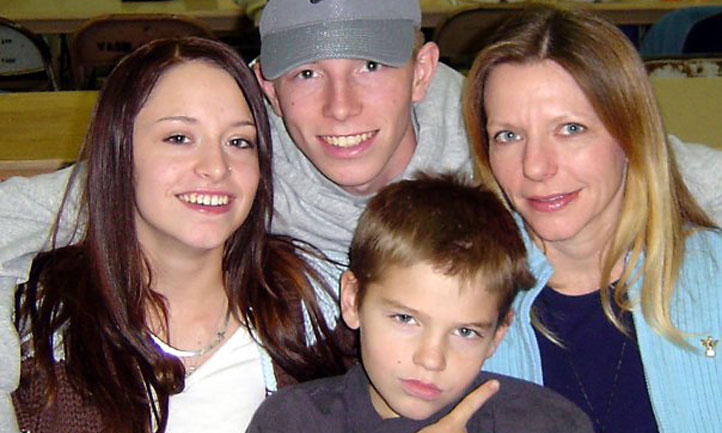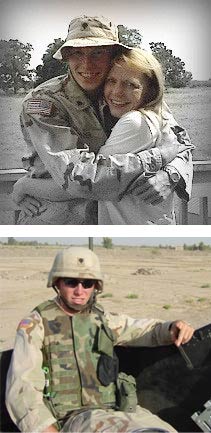How I learned to manage 'ambush moments' by replotting my grief journey
Author: Terri Jones
September is National Suicide Prevention Month. This article is the third of five stories by TAPS suicide loss survivors who wish to share lessons learned from their grief journeys. We invite you to share this story using the hashtag #SurvivorSunday. If you know or someone you know is struggling with thoughts of suicide, please call the National Suicide Prevention Lifeline 24/7 at 800-273-8255.
I am mindlessly walking through the grocery store. What did I come for again? To be honest, I don’t know why I’m here. I just need to eat, but nothing sounds good. People are here that know me. I lower my eyes to avoid being recognized. It’s probably not working. I just do not have the strength to talk to anyone. I know some people really care, but today I’m just trying to get a task done. Just one little task. Why is this so hard? What am I here for again?
I turn a corner and wander down the cereal aisle. Suddenly, I’m overcome by memories of my son, and one memory in particular. There he is, my little boy, eating a bowl of Lucky Charms. He’s singing that goofy song he made up. “I’m the marshmallow man!” I can feel the panic in my chest. The tears start to well up. I abandon my cart in the middle of the aisle and bolt. I feel bad about it, but I have to retreat to somewhere safe, past the other shoppers, through the parking lot, and back to my car, where I can just cry in private.
This was an “ambush moment,” the first of many I would experience in my long journey of grief since my son, Jason, died by suicide.
For years after his death, Jason would visit me. There he’d be, unexpectedly—most often when I was least prepared for it. Twenty-three years of precious memories, distilled into moments. These visits were at times joyous reunions with my son. At others, they were confrontations I dreaded. The worst part was that I didn’t know when they would come. The sights, sounds, and smells that would trigger them.
That is why I call them ambush moments. It was my life now, my new normal as they say. I had to learn to navigate these ambushes and the rabbit holes they took me down—the feelings of guilt and shame they elicited, which no one truly understood. Every ambush moment brought forth comments from people around me like, “Terri, you need to pull yourself together.” Worse were the whispers. “She isn’t doing well,” they would say. “Shouldn’t she be better by now?”
Jason died 14 years ago. All of my favorite memories of him no longer bring on panic and tears. And there is a reason for that. I eventually figured out my own coping techniques, ways of preparing for the ambush moments I knew would come, and rehearsing in my mind how I would deal with them when they did. Over time, this strategy proved helpful. I would hear a song that reminded me of Jason and I would allow myself to embrace the memories that spilled forth. Today, when I see a Lucky Charms box, I can look at it and rejoice in the memories that Jason left to us. His funny marshmallow man song. In fact, it’s become one of our favorite family stories to share.
 Photos courtesy of Terri Jones
Photos courtesy of Terri Jones

They say time heals all wounds. That sounds nice, but there’s more to it. Those of us who have lost a loved one are forgiven for countering with this idea: “I will never stop grieving, and I shouldn’t have to, because grief is love.” The truth is grief lies somewhere between full recovery and permanent bereavement. It’s a journey that doesn’t end but evolves over time.
So it is with the ambush moments. I still get them from time to time. My other children recently observed that Jason has been out of their lives longer than he was in them. That was a hard day. Time has not changed the fact that Jason is gone and dearly missed. I can also say that there are days, weeks, and months that are truly good. And I do not feel guilty about the good ones.
The point is that grief—like love—never really goes away. It just changes form. Understanding that has made all the difference.
Terri Jones is the surviving mother of Army Specialist Jason Cooper and serves on TAPS Survivor Care Team.
